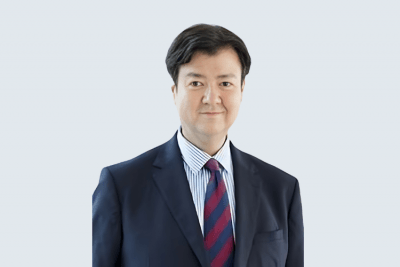Wealth Solutions & Wealth Planning
Cautionary Tales and Solid Advice for Asia’s Wealthy Considering Taking up Residence in the US

Jul 21, 2021
John Shoemaker, a Registered Foreign Lawyer for US law firm Butler Snow in Singapore, is an expert on regulation, compliance and good practices and has forged his career on offering robust, timely advice to wealth management intermediaries and their wealthy clients. Hubbis had the pleasure of his company as an expert panellist at our recent Digital Dialogue event of June 24, when our experts offered delegates their insights into the key trends and key issues relating to alternative residence and citizenship planning. John’s big picture view of global and regional compliance, and especially with regard to the US, added an invaluable perspective to what was a lively and informative discussion. We have summarised some of his views in this short report.
John opened his comments by remarking that it is essential in all situations when speaking about anyone who might fall into the US tax net to plan ahead properly. “It is actually really tough to get clients’ attention on these matters at an early stage,” he reported. “We all know about the EB5 Immigrant Investor Visa Program in the US, and I find it truly concerning, abhorrent actually, that there are so many people out there selling these EB5 visas without having had conversations with the clients about the tax consequences.”
Take the surprises out of the equation
He explained that if lucky and he or colleagues can start the advisory process with the clients early on, they usually quickly realise that they would then be subject to worldwide taxation. “But if we arrive later in the process, these people can end up truly exposed to some very negative tax consequences that all too often come as a complete surprise to folks that are on the pathway to entering the US and getting their Green Card,” he cautions.
For that reason, John entirely agreed with other panellists who had called for robust planning ahead of any such moves to any jurisdiction. “But I want to also emphasise the opposite side of the equation, which is somewhat unique to America, and that is the potential exit situation,” he reported. “Don’t get entirely focused just on where you're going and lose track of how to in an efficient manner and in a timely manner; you might later need to exit.”
Watch out for the exit traps
And he explained that for the US, there is a potential exit tax exposure due to retention of an individual’s residence status beyond the time when they physically leave. “I am actually a great example, as I left the US, but it did not change a thing,” John said. “I've been in Singapore, and due to Covid-19, it's been two years since I've stepped foot back in the US, but nothing has changed from a tax perspective, still paying all my US taxes and filing and paying the relevant dues there.”
And he warned that similar issues might emerge relating to Mainland China, where there is the idea of a global tax concept based on the passport. “Moreover, I think other countries will start to take that approach as well,” he added.
Green Cards and naïve clients
Refocusing his attention on the US, John warned that the US rules are incredibly tricky. “I'm working on an academic paper right now about the Green Card rules,” he reported. “There are situations where you can apply for a Green Card, be overseas, get it issued to you, and then you work with your family to get all your affairs ready, and you move to the US, and you find out you have been considered a US resident well before you arrived, that you then find out there may have been gains that on which you owe tax in the US that might not have been even treated as taxable in the country in which you were resident at that point. In short, people need to pay really close attention to the Green Card protocol, talk to advisors early, and truly understand what it is to become a US resident.”
Nevertheless, John told delegates that these issues are not deterring people from their applications; there are still plenty of people in Asia who still wish to relocate to the US.
The US remains a powerful magnet
“There are clearly great advantages and attractions in the US from a business perspective, as well as for lifestyle,” he commented.
“If you go into the US with your eyes wide open and you put into place the proper and highly efficient planning, you will be fine. We know the old days of no tax are gone, and we see that the second and third generations are really quite comfortable with a reasonable taxation rate, which can be achieved in the US depending upon which state you choose and having done the right planning before applying.”
Keeping an eye on the plethora of regulations
John also highlighted how private clients must be fully cognisant of the implication for all the new regulations and requirements around the FATCA regime, the CRS, AEOI, economic substance, BEPS and so forth. He said it really helps with proper planning around residency and citizenship alternatives to have experts at the table to ensure that the optimal outcomes are achieved for the individuals and families. He warned that the implications of Joe Biden’s drive for a minimum global corporate tax rate could have massive implications for alternative residence and citizenship planning, as well.
“Don't think that these are completely separate topics from what we're talking about today in terms of alternative jurisdictions,” he warned. “These are issues of concern regarding holding companies, and there are oftentimes unintended or unforeseen consequences. I do agree with a fellow panellist who has observed that with such pressure on national finances, there will be more and more pressure to extract tax. Clients need to be aware and achieve efficient planning and then movement, with good stability to follow.”
The global US tax net
He added that more and more countries are going to become tempted by the US approach. “If you look at the history of human development, there's never been a governing system that once they identify a stream of revenue, can resist the temptation to tax it,” he observed. “And if they see people leaving them, they're going to change the rules and make it harder to leave them, or they're going to expand the rules to have a bite of what those people are taking with them when they go. In the PRC, for example, their recent changes to the individual income tax regime may before long lead to tax based on citizenship; they might say that was what they were driving towards from the start.”
Plenty on the mind
However, John also notes that, following the Covid-19 epidemic, an increasing number of countries are also being driven to action by social pressure stemming from wealth inequality concerns. Further to this, he notes that a degree of regard should also be paid to the notion of global minimum tax standards, this being the idea that, for example, once an individual is in a country's tax residence system, you can't leave unless you establish residency in another acceptable jurisdiction.
In addition, John raises the point that data control has in turn inspired a degree of action in a number of jurisdictions, with it becoming increasingly tempting to many jurisdictions to conflate passports and citizenships with tax residency for information exchange purposes. And once countries get used to having that data, he notes, it will be tough to ween them from the power and control that provides.
Do you really want to leave? Think again…
John commented further on the likelihood of an emerging trend among jurisdictions to make it more complex for individuals and families to leave from an income tax residence perspective.
“Accordingly,” he said, “the key message for any clients that are looking at a change, whether it's for tax reasons, financial reasons, family reasons, business reasons, is to take proper advice, not just on where you're going, but where you're leaving from to make sure you're aware of recent developments and recent interpretations, and you do not fall into any traps, that you also don't miss a trick.”
“For example, if you were to sell an asset before moving to the US, do it well in advance so that you do not unwittingly trip over into a huge, potentially unexpected tax bill from the US.”
Take advice, get it right
And his final word was on the exit strategy. “When exiting, also think about getting out with well-planned timing,” he advised, “so that you don't suffer a negative consequence of bad timing for your personal or business wealth. All these matters should be carefully considered and properly planned for, especially as the wealth category rises, but even for the HNW clients as well.”
John Shoemaker – a Snapshot
Born in the state of Alabama in the southern US, John Shoemaker was later educated at the University of Kansas, his mother’s home state. He graduated with his Bachelor’s degree and then obtained his law degree from Washburn University School of Law, which is also in Kansas. He then earned his Master’s in Law with a speciality in tax from the University of Alabama Law School.
He is married, and quips that a great turning point in his life was leaving the US. “I say that both tongue in cheek, and also genuinely,” he comments. “I am now working on a little article for my hometown Bar Association’s magazine, and it's called ‘I love America, I Left It, and You Should Too.’ I am a firm believer that my life was fundamentally changed by getting out of the small pocket that I grew up in and really getting a chance to see how other people and cultures treat issues and problems, and enjoying all types of cultures, cuisines, in fact, every element of life on offer.” He adds that the move to Singapore has suited him remarkably well both from a work and lifestyle perspective.
He is a great believer, he says, in lifelong learning and has multiple degrees. He and his wife also spend a lot of time on physical fitness and outdoor activities, including Spartan races, triathlons, and other endurance events, which he says not only keep them very fit but offer a great distraction from lockdowns.

Registered Foreign Lawyer at Butler Snow

More from John Shoemaker, Butler Snow
Wealth Solutions & Wealth Planning
Premeditate and Build Pre-emptive Structures says Top Lawyer as the Winds of Tax Change Arrive
Wealth Solutions & Wealth Planning
Leading US Lawyer John Shoemaker on AEOI and the Effectiveness of Information Exchange
Latest Articles






